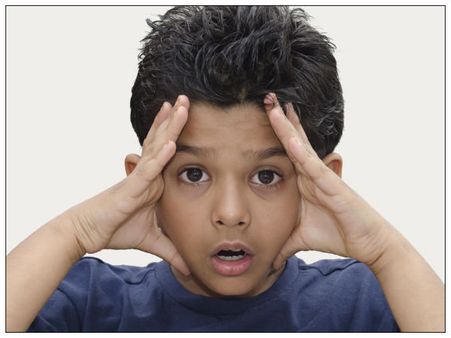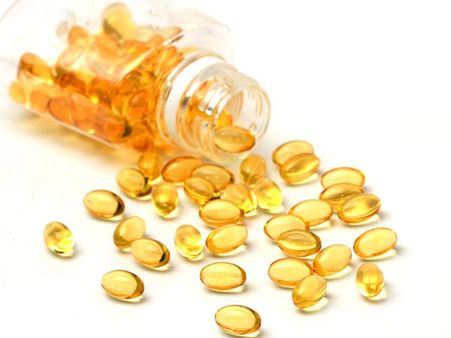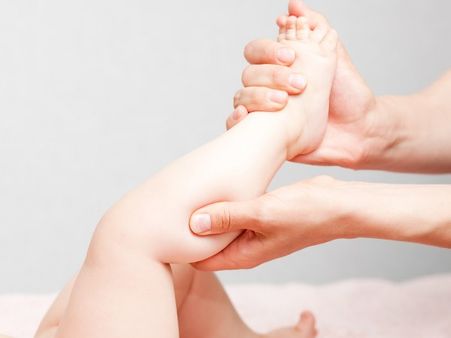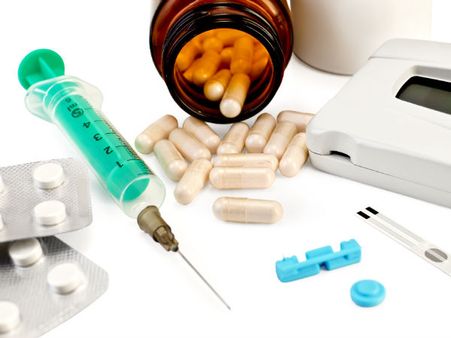Just In
- 1 hr ago

- 5 hrs ago

- 8 hrs ago

- 10 hrs ago

Don't Miss
- Sports
 IPL 2024: 'Nothing To Do With Mental Health' - Glenn Maxwell Clarifies His Absence From RCB Playing 11
IPL 2024: 'Nothing To Do With Mental Health' - Glenn Maxwell Clarifies His Absence From RCB Playing 11 - News
 Karnataka Weather Alert: Will Bengaluru See Rain Before May?
Karnataka Weather Alert: Will Bengaluru See Rain Before May? - Finance
 Tata Motors To Utilize New $1 Billion TN Plant For Jaguar Land Rover Cars
Tata Motors To Utilize New $1 Billion TN Plant For Jaguar Land Rover Cars - Movies
 Very Parivarik Episode 5 OTT Release Date, Platform: Get Ready For Major Twist; Here's When & Where To Watch
Very Parivarik Episode 5 OTT Release Date, Platform: Get Ready For Major Twist; Here's When & Where To Watch - Technology
 AMD Revamps Business Computing with AI-Fueled Ryzen PRO 8000 Series Processors
AMD Revamps Business Computing with AI-Fueled Ryzen PRO 8000 Series Processors - Education
 RMLIMS Nursing Officer Recruitment 2024; Apply for 665 Vacancies, Know more
RMLIMS Nursing Officer Recruitment 2024; Apply for 665 Vacancies, Know more - Travel
Telangana's Waterfall: A Serene Escape Into Nature's Marvels
- Automobiles
 The Rezvani Retro RR1 Is A Modified Porsche 911 Done Right
The Rezvani Retro RR1 Is A Modified Porsche 911 Done Right
Autoimmune Diseases In Children – Symptoms & Treatment
How to detect whether your kid is suffering from autoimmune disease? Read on to know about the symptoms of autoimmune diseases in children...
Sometimes, your immune system may not recognize the healthy tissues in your body and attack them by thinking them to be foreign bodies or antigens. This is when you can acquire an autoimmune disease.
There are two types of autoimmune diseases: Systemic and Localized. The systemic ones tend to spread to various organs from your skin to your kidneys as well as the heart. On the other hand, the localized autoimmune diseases have an effect on a particular body organ like thyroid, liver or the adrenal glands.
The autoimmune diseases can have effect on any body part, such as it can affect your joints, blood vessels, red blood cells, connective tissues, muscles or even your endocrine glands (like pancreas or thyroid). Even children could be affected by autoimmune diseases.
Also Read: 5 Most Common Diseases In Children
Some of the very common autoimmune diseases that can be seen in children include liver disease, coeliac disease, Addison's disease, AT(or autoimmune thyroiditis), juvenile arthritis (JA), juvenile scleroderma, type 1 diabetes, Kawasaki's disease, MAS (or multiple autoimmune syndrome), paediatric lupus (SLE), etc.

Fact #1
The symptoms of autoimmune diseases partly depend on the disease pathology because they might be either organ specific or general. The general symptoms have the maximum probability to emerge in the very beginning, whereas the other unique abnormalities might appear later.

Fact #2
The very first symptoms should be taken as clear signs when observed in children. Some of the very common symptoms of autoimmune diseases are as follows:
Dizziness
Slight
fever
Fatigue
Dry
mouth
or
dry
eyes
Weight
loss
Diffuse
joint
pain
Skin
rashes
Specific symptoms would depend on the affected body parts, whereas the general symptoms would make your child not feel well. Fatigue and rashes are very general symptoms that can happen to any age group among children.
Also Read: Facts About Schizophrenia In Kids

Treatment for Autoimmune Diseases
The primary aim of treatment of the autoimmune disease is to alleviate the symptoms, to control the damage because of the disease and to retain the ability of the child's body to combat the disease.
Following are some of the common methods of treatment for autoimmune diseases:
Blood
Transfusion
In
kidney
and
liver
disorders,
blood
transfusion
becomes
necessary
for
your
child
because
the
body
stops
producing
enough
blood.

Supplements
Your doctor may suggest some supplements to replace the insulin, hormones (like thyroid) or vitamins in your kid's body.
Also Read: Does Childhood Obesity Cause Liver Disease?

Physical Therapy
If your kid has an autoimmune disease, which is associated with joints, muscles or bones, then a physical therapy is very essential for him/her to reinforce the muscles and help his/her body parts to move easily.

Non-steroidal Anti-inflammatory Medicines
These kind of drugs are basically painkillers like naproxen and ibuprofen. They help relieve the stiffness, ache and swelling in the child's body. They have the ability to suppress the pain triggered by specific diseases like rheumatoid arthritis. However, the dosages will be as per the physician's prescriptions.
Also Read: Is Peanut Butter Healthy For Kids?

Corticosteroids
These are the hormones that are produced by the adrenal glands. These hormones come in the form of injections, lotions, tablets and inhalers. These medicines are very powerful and hence only tiny doses are prescribed by the doctors, because taking high doses may result in side effects that can continue for longer periods. An example of such a drug is Prednisone. Some other kinds of treatments include Intravenous Immunoglobulin or IVIg, biologics and DMARDs.
Sometimes, the treatment may depend on the type of autoimmune disease your child has. For instance, in a case of Crohn's disease (bowel obstruction) or juvenile idiopathic arthritis, your child may need a surgery.
Another such rare treatment is plasmapheresis, which is a method to eradicate plasma. Plasma mainly carries antibodies in your blood. Only in severe cases, the doctor suggests this procedure because plasmapheresis also helps the body to get rid of the antibodies that may be triggering the autoimmune response in the body of the child.
-
 fashionHoli 2024 Dress Ideas For Girls & Boys, Style Tips To Let Little Ones Shine Bright
fashionHoli 2024 Dress Ideas For Girls & Boys, Style Tips To Let Little Ones Shine Bright -
 fashionRepublic Day 2024: Kids Will Dress To Impress With These Amazing Fashion Tips
fashionRepublic Day 2024: Kids Will Dress To Impress With These Amazing Fashion Tips -
 pregnancy parentingChristmas 2023: How To Raise Kids Who Are On Santa's Nice And Naughty List This Holiday Season
pregnancy parentingChristmas 2023: How To Raise Kids Who Are On Santa's Nice And Naughty List This Holiday Season -
 pregnancy parentingIncreasing Reports Of STIs In Children: Tips for Parents on Educating Kids about STI Prevention
pregnancy parentingIncreasing Reports Of STIs In Children: Tips for Parents on Educating Kids about STI Prevention -
 pregnancy parentingAre You The Second Favourite Parent To Your Kid? Signs To Watch Out For
pregnancy parentingAre You The Second Favourite Parent To Your Kid? Signs To Watch Out For -
 pregnancy parentingWorld Toilet Day: 5 Ways To Teach Healthy Bathroom Habits In Kids
pregnancy parentingWorld Toilet Day: 5 Ways To Teach Healthy Bathroom Habits In Kids -
 pregnancy parentingChildren's Day 2023: A Glimpse Into Education Abroad: Perspectives From Indian Parents In Canada, Australia..
pregnancy parentingChildren's Day 2023: A Glimpse Into Education Abroad: Perspectives From Indian Parents In Canada, Australia.. -
 pregnancy parentingChildren's Day 2023: Best Gifts Ideas For Children, Kids That Will Help Them Grow Beautifully
pregnancy parentingChildren's Day 2023: Best Gifts Ideas For Children, Kids That Will Help Them Grow Beautifully -
 pregnancy parentingWorld Savings Day: How To Start Saving Habits At A Young Age? 5 Fool-proof Parenting Tips!
pregnancy parentingWorld Savings Day: How To Start Saving Habits At A Young Age? 5 Fool-proof Parenting Tips! -
 pregnancy parentingSpook-tacular Sugar-Free Halloween Snacks: Quick Snacks For Diabetic Kids
pregnancy parentingSpook-tacular Sugar-Free Halloween Snacks: Quick Snacks For Diabetic Kids -
 pregnancy parentingWhat To Do When Your Kid Hates Haircuts? Parenting Tips To Get ‘em To The Salon!
pregnancy parentingWhat To Do When Your Kid Hates Haircuts? Parenting Tips To Get ‘em To The Salon! -
 pregnancy parentingAre Agarbattis Safe For Kids? Watch Out For These Ingredients
pregnancy parentingAre Agarbattis Safe For Kids? Watch Out For These Ingredients


 Click it and Unblock the Notifications
Click it and Unblock the Notifications



